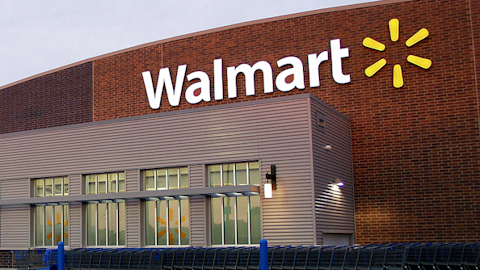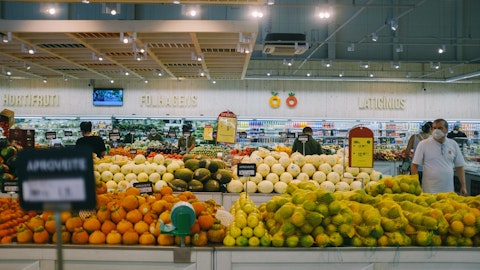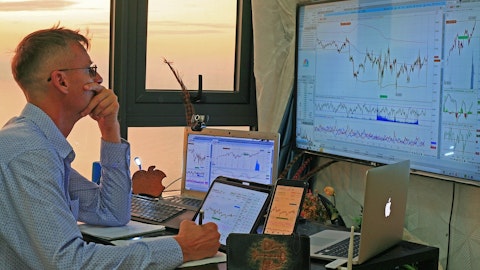Simeon Gutman: Right. And then as a follow-up on the backdrop regarding pricing inflation, it seems like the backdrop is maybe more oligopolistic than one would have thought, not that it’s not competitive out there, but in terms of price and wondering what that’s a function of and maybe what could disrupt it? Is that a fair assessment?
William McMullen: We would certainly describe it and look at it different than that. And we’ve invested in pricing — I’m trying to remember for the last 20 years or so every single year and would expect to continue to do that. And we fund that through process change, identifying other things to get costs out. And an awful lot of our promotions are much more directed personalized to the customer. So it’s not what you see when you go to a store to look on a shelf because we provide a significant higher percentage of our value to our customers through fuel rewards and personalized offers that are connected one-on-one from — in using technology and digital so that each person is individual. So we would certainly not describe it that way. And we view it — every year is incredibly competitive, and everybody is working hard to do a better job and the customer gets the benefit of that.
Operator: Our next question comes from Michael Lasser of UBS.
Michael Lasser: Between the comments that you had indicated at the early start of the call, where you’re working on the profitability of your digital business, along with what it sounds like a slowdown in the rollout of your Ocado shed this year, have you evolved your thinking on the long-term profitability of digital sales for Kroger because you had previously indicated that you expected the incremental margin on an incremental dollar of sales to be at or above an in-store dollar of incremental sales.
William McMullen: When you look at our digital business long term, we wouldn’t see the profitability be any difference in this supermarket when you look at it over a longer period of time. And if you look, what we find is a customer when they move online, they actually after a year engage with us more in store than before. So what we’re really focused on is having an ecosystem where the customer thinks food, they think Kroger. And what we’re finding is the customer routinely moves back and forth between the different channels. If you look at each piece of it, every single day, you’re working to figure out ways to improve processes and take costs out. And then on top of it, obviously, retail media is an important part of the driver.
So when you look at it long term, we really see no change in the opportunity and potential. We’re incredibly excited and everything that we see, we think it will be more important in 3 years, 5 years, 10 years to have where the customer engage with us through multiple ways. And the digital channel is a critical part of that, and we find the customer engages with us digitally, even when they don’t shop digitally. So for us, we see it as exciting as we did before. We don’t see the long-term profitability being different. And we’re working continually in terms of both internally and with our partners on how to improve processes.





